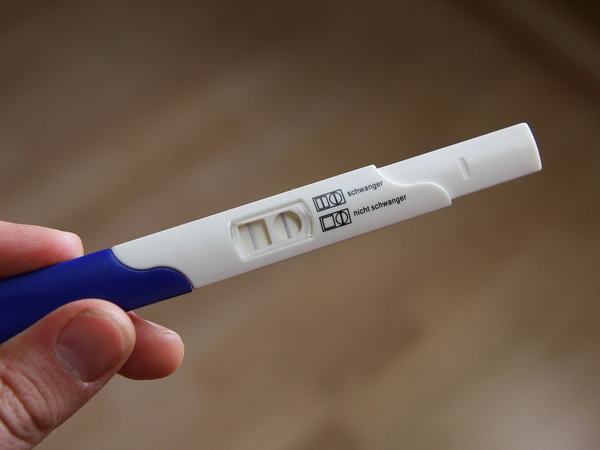A scientific look at pregnancy tests: how do they work?
When women suspect they are pregnant, the first step is often to buy a pregnancy test. But have you ever wondered how these tests actually work? In this article, we dive deep into the science behind pregnancy tests and reveal how they can reliably tell us whether or not a new life exists.

The role of the hCG hormone
The secret behind how pregnancy tests work lies in a hormone called human chorionic gonadotropin, or hCG for short. This hormone is produced in your body only when a fertilized egg has nested in the uterus. It is therefore a reliable indicator of pregnancy.
Pregnancy tests: a biochemical detective
When you buy and use a pregnancy test, the test starts looking for traces of hCG in your urine. It does this through a chemical reaction known as an immunoassay. In this process, an antibody bound to a dye molecule interacts with the hCG hormone when it is present. The compound causes a color change that tells us the positive result.
The accuracy of pregnancy tests
A good reason to buy a pregnancy test is their accuracy. Most tests can detect hCG even in small amounts, often just a few days after the egg has implanted. However, it is still important to use the test correctly and take it at the right time to get accurate results.
False results: False positives and false negatives.
Although pregnancy tests are generally reliable, there are instances when they can give false results. False-positive results can occur when the hCG hormone is present in the body for reasons other than pregnancy, such as:
- 1. certain medications: some medications, especially those used for fertility treatment, may contain hCG. These medications may cause a positive pregnancy test even if there is no pregnancy.
- 2. certain health conditions: certain health conditions, such as tumors of the ovaries, bladder, kidneys, lungs, or gastrointestinal tract, can sometimes produce hCG. In addition, a rare condition called trophoblastic disease (which can be benign or malignant) can also cause hCG production.
- 3. Hormonal disorders: Some hormonal disorders, such as polycystic ovary syndrome (PCOS), can affect hCG levels in the body.
- 4. Miscarriages and ectopic pregnancies: After a miscarriage or an ectopic pregnancy, hCG may remain in the body for a while, which can lead to a positive pregnancy test.
- Menopause: During menopause, some women may have elevated hCG levels even though they are not pregnant.
False-negative results can occur if the test is done too early, before enough hCG has been produced.
Different types of pregnancy tests
When you buy a pregnancy test, you'll find that there are different types, including stick tests and digital tests. While all are based on the principle of hCG detection, some offer additional features such as estimating the week of pregnancy.

The magic of molecules
To sum it up: When you buy a pregnancy test, you're purchasing a little miracle of science. It's amazing how something as small and simple as a pregnancy test is able to detect the presence of such a tiny, emerging life. It is the power of biochemistry that provides us with this reliable method to detect one of the most significant moments in many people's lives: the beginning of pregnancy.
The importance of correct use
Although pregnancy tests are usually easy to use, it is important to follow the instructions carefully. Some factors, such as the amount of water consumed or the timing of the test, can affect the result. Therefore, it is important to be well informed before buying a pregnancy test.
Why a visit to the doctor is important
A positive pregnancy test is the first step, but it is always advisable to see a doctor to confirm the pregnancy and get the necessary medical attention if needed. Even with negative results, if symptoms of pregnancy persist, it is important to seek medical advice. Incidentally, a midwife can also confirm pregnancy and issue a maternity card.

Science in your hands
Pregnancy tests are a perfect example of how scientific knowledge translates into practical applications that affect our daily lives. The next time you buy a pregnancy test, think about the fascinating biochemistry behind that little stick. It's truly remarkable how far we've come and how we can use these amazing tools to learn more about our own bodies.
Image sources
- Cover image: pexels.com
- Image 1: unsplash.com
- Image 2: pixabay.com
- Image 3: pexels.com
No comments yet.